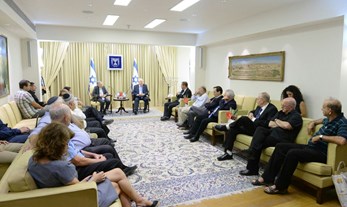


NGO Bill Passes: IDI Scholar Dr. Amir Fuchs Reacts
Despite the many changes that have been made to the bill, largely due to the opposition of many coalition MKs that did not want to harm human rights organizations, the bill is still not a good one, it will not improve transparency, and it has no precedent in the Western World.
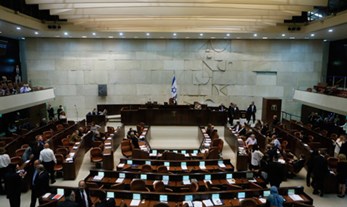
IDI Scholars’ Statement Ahead Of Tomorrow’s Discussion on V-15 Bill
It is important to require transparency, not to limit contributions, and to establish an effective and equal process of oversight

IDI Statement in Honor of International Day of Democracy
Israeli democracy is dealing with complicated challenges, but we are in a good place in comparison to other countries around the world

Peace Index: 62% of Israelis Predict Clinton Will Win U.S. Election
Sixty-two percent of Israelis expect Democratic candidate Hillary Clinton to win the U.S. election, according to the latest Peace Index, published Wednesday by the Israel Democracy Institute and Tel Aviv University.

IDI Praises MK Ayelet Shaked: Time to Reduce Private Legislation
The Israel Democracy Institute praises Justice Minister Ayelet Shaked, who at the Israel Bar Association conference in Tel Aviv on Aug. 31 railed against overregulation and over-legislation.
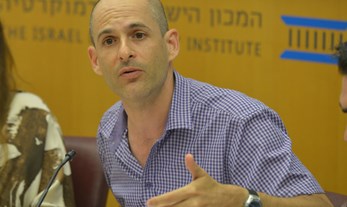
IDI’s Gilad Malach Comes Out Against Decision to Recognize Rabbinical Studies as Academic Degree
The Israel Democracy Institute’s Dr. Gilad Malach, head of the program on Ultra-Orthodox Society in Israel, today came out against a decision made by Interior Minister Aryeh Deri in coordination with the Civil Service Commission to recognize Rabbinical studies as an academic degree in order to allow Haredim to participate in local tenders.

Monthly Peace Index: IDF should Espouse Pluralistic and Open Value System
Sixty-nine percent of Jewish Israelis believe it is good for the IDF to espouse a pluralist and open value system, including accepting “others,” such as members of the LGBT community.

IDI President Plesner Responds to Liberman's Rebuke of Army Radio
IDI President Plesner Responds to Liberman's Rebuke of Army Radio
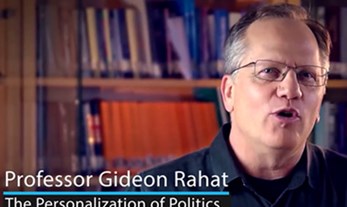
The Personalization of Politics
Written By: Prof. Gideon Rahat
Research Reel with Professor Gidon Rahat - The Personalization of Politics

Head of IDI’s Religion and State Program: ‘It Should be Forbidden to Appoint Rabbis to Senior Posts who Copy-and-Paste Laws from Biblical Times and Apply them to Today’
Head of IDI’s Religion and State Program: ‘It should be forbidden to appoint rabbis to senior posts who copy-and-paste laws from Biblical times and apply them to today’

'The Mikveh Bill Harms the very Ethos of the State of Israel as a State for all Jews,’ IDI Researcher Yair Sheleg
In advance of Wednesday’s discussion in the Knesset Interior and Environment Committee on the Mikveh Bill, the head of IDI’s Religion and State program, Yair Sheleg, sent a policy paper to committee MKs asking them to vote against the bill. He said the bill unacceptably discriminates, something which is known to its sponsors and clear in the bill’s explanatory notes. The legislation was presented by its sponsors in reaction to a Supreme Court ruling that public ritual baths could be used by the wider public, including for non-Orthodox conversions.
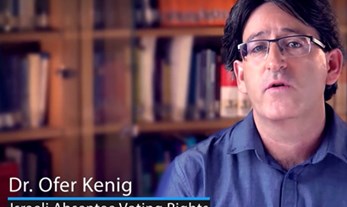
Absentee Voting Rights
Written By: Prof. Ofer Kenig
Research Reel with Dr. Ofer Kenig - The Absentee Voting Rights

The Military Censor in the Digital Age
Research Reel with Dr. Tehilla Shwartz Altshuler - The Military Censor in the Digital Age
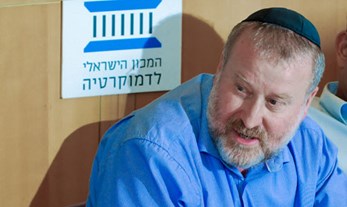
IDI's Lurie Applauds Move by A-G Mandelblit to Publish Schedule of Meetings
The Israel Democracy Institute yesterday welcomed the decision by Attorney-General Avichai Mandelblit to publish his schedule of meetings.
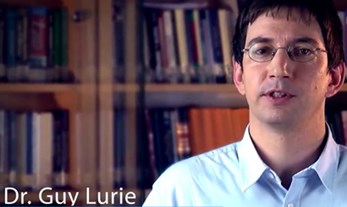
The Role of the Attorney General
Written By: Dr. Guy Lurie
Research Reel with Dr. Guy Lurie - The Role of the Attorney General
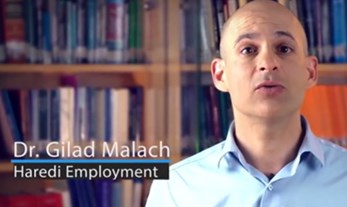
Haredi Employment
Written By: Dr. Gilad Malach
Research Reel with Dr. Gilad Malach - Haredi Employment

New IDI Research for the Institute's "Haredi Women's Leadership:"
The project was done in collaboration with Kemach Institute and the JDC Haredi Employment Program

IDI Scholar Applauds Efforts to Expand From Where Israelis Can Cast Their Ballots
IDI Scholar Applauds Efforts to Expand From Where Israelis Can Cast Their Ballots

Israel Democracy Institute Scholars Ahead of Today's Expected Vote on the NGO Bill:
Ahead of the discussion and expected vote on the NGO Bill today by the Knesset Law and Constitution Committee, Israel Democracy Institute scholars came out against the bill's progression and the members of Knesset who plan on pushing it through.

IDI Scholars in Favor of Bill that would Increase Funding for Parties that Hold Primaries to Select their MKs
"The law in Israel has a double-standard and discriminates against parties with democratic systems that enable the wider public to take an active role in politics"

The Kosher Monopoly
Written By: Dr. Shuki Friedman

Plurality of Israelis Welcome Yisrael Beiteinu into Coalition, Signaling 'Desire for Right-Wing Dominance'
A plurality of the Jewish public views the addition of Yisrael Beiteinu into the government coalition over Zionist Union as a step in a positive direction, according to the latest Peace Index, released this week by the Israel Democracy Institute and Tel Aviv University.

Outstanding Parliamentarian Award
The Israel Democracy Institute on Tuesday will bestow the
Outstanding Parliamentarian Award on two members of the current Knesset: Minister Moshe Gafni (United Torah Judaism) and MK Ayelet Nahmias-Verbin (Zionist Union).

IDI Scholars Ask MKs to Vote Against MK Suspension Bill in Knesset Panel on Tuesday
"The Knesset does not have the judicial expertise, knowledge or necessary tools to determine facts. This bill proposes a fully-blown judicial process, including granting MKs the ability to punish other MKs for criminal acts," according to a statement by Prof. Mordechai Kremnitzer and Dr. Amir Fuchs.

IDI's Yair Sheleg on the Coalition Agreement
The decision by Yisrael Beiteinu to concede on its demands related to issues of religion and state in order to join the coalition reflects a problematic reality.

Israel Democracy Institute Scholars Come Out Against NGO Bill
Israel Democracy Institute Scholars Came Out Against the NGO Bill, which is being discussed today in the Knesset Law and Constitution Committee

MK Moshe Gafni: 'Economic Gap in Israel is Growing'
First session of IDI's Hurvitz Conference on Economy and Society highlights Ministry of Finance strategic plan, need for improved public transportation, increased housing supply and better education and employment opportunities for Arabs, ultra-Orthodox



